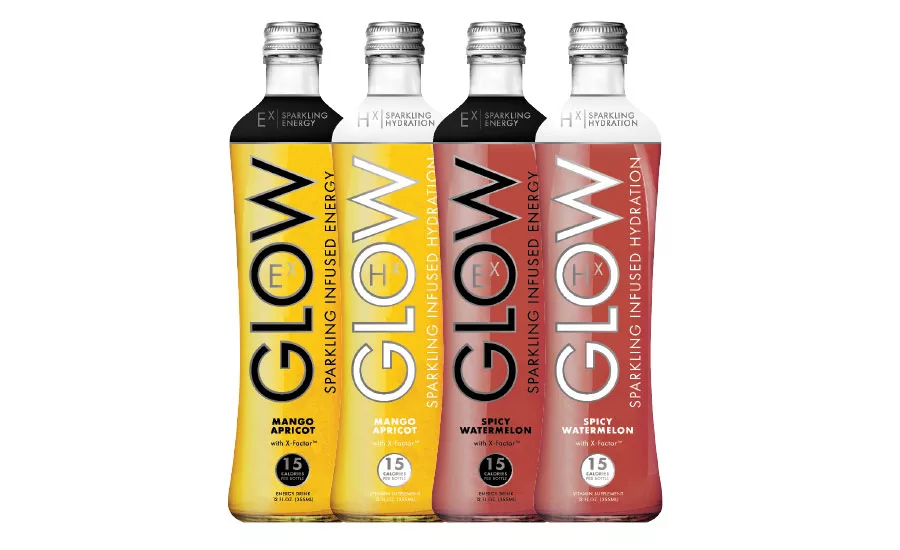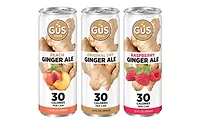Natural sweeteners cut calories, improve taste
Cargill’s EverSweet commercially available in 2018

The old saying that we are what we eat is resonating with today’s consumers, who are reading labels and turning to healthier foods and beverages to improve the quality of their lives. As part of their efforts to live healthier lifestyles, reducing the amount of sugar also is top of mind for many consumers.
In fact, the U.S. Food and Drug Administration’s (FDA) new Nutrition Facts label — originally scheduled to take effect July 26, 2018, but was extended to Jan. 1, 2020 — features an “Added Sugars” designation. As consumers track their added-sugar consumption, label-friendly, natural sweeteners like stevia, erythritol and monk fruit are proving to be beneficial in beverage formulations, ingredient suppliers say.
“In general, consumers want to know what is in their products and more and more of them are demanding natural solutions over artificial ones. Transparency and the health-and-wellness-conscious consumer has become the new norm,” says Soumya Nair, director of market insights at Beloit, Wis.-based Kerry. “Over the past years, sugar and artificial sweeteners have been demonized due to their ties with obesity and cancer, respectively.
“With the discovery of stevia, monk fruit and other natural sweetener alternatives, tied with the rise of the ‘real food’ movement, it has opened the floodgates for beverage formulators to create products that resonate with today’s consumers,” she continues.
Thom King, chief executive officer of Portland, Ore.-based Icon Foods, formerly Steviva Ingredients, also notes the “soaring consumer demand” for cleaner labels and less added sugars. “Beverage manufacturers [are] racing to bring down added sugars and clean up their ingredient statements,” King says. “We have seen increasing interest in our allulose, stevia and monk fruit blend, [which is] specifically designed for beverages.”
Research suggests consumers are seeking products with less sugar. According to the International Food Information Council’s (IFIC) 2017 Food and Health Survey, 76 percent of consumers now say they are avoiding sugar or limiting consumption. The study also noted record numbers (60 percent) are cutting back on calories by drinking low- or no-calorie beverages.
Although sugar is still the most-preferred sweetener (38 percent), the IFIC study notes that 32 percent of consumers say they use low- or no-calorie sweeteners and of those who use low- and no-calorie sweeteners, 63 percent say they do so to reduce their sugar and calorie consumption.
Kerry’s Beverage Marketing Specialist Nina Jacobson notes that educated consumers with easy access to technology and new labeling laws and sugar taxes have created a shift where consumers, especially millennials, are choosing more natural products.
“Today, more products bear the claim ‘no artificial flavors or sweeteners’ than ever before,” Jacobson says. “Beverage formulators have a great opportunity to utilize natural products in combination with flavor modulating technology to create great-tasting, naturally sweetened beverages.”
Power of the label
Beverage labels also are influencing consumer purchase decisions. Sales of products with natural and organic claims have grown 24 percent and 28 percent, respectively, during a two-year period, according to New York-based Nielsen’s Global Health and Wellness report.
“Consistent with the interest in more pure/natural products, sales of artificially sweetened ‘diet/light’ products declined 12 percent, while products naturally sweetened with stevia grew 186 percent,” the report states.
Research from Cleveland-based The Freedonia Group also points to this trend. “Demand for stevia is forecast to reach $120 million in 2021, after yearly gains of over 11 percent,” it states.
Although overall growth will be slower than it was during the 2011-2016 time period due to declining carbonated soft drink production and the growing popularity of unsweetened ready-to-drink teas and coffees, beverage applications constituted 37 percent of total stevia demand in 2016, it adds.
Typically, stevia is used in noncarbonated beverages, particularly juice drinks, flavored waters and nut milks, while carbonated applications have been more limited, it reports.
Yet, this is changing. The improved taste of stevia, high rates of obesity and diabetes, and regulatory factors are driving demand for its use within carbonated beverages, says Shasha Yu, marketing director at Sweet Green Fields USA LLC, Bellingham, Wash.
“Driven by regulatory pressure and healthier consumer lifestyles, food and beverage manufacturers are also focusing more on low-calorie or pro-diet products, making strong commitments to reducing sugar-contributed calories,” Yu explains. “The two most significant examples of this are PepsiCo and Coca-Cola Co., global leaders in food and beverages. The former has already pledged to provide two-thirds of its beverages within 100 calories per 12-ounce serving, and the latter [is] set to launch a zero-calorie ‘Stevia No Sugar’ soda this year buoyed by the success of Coca-Cola Life, which was sweetened with stevia and sucrose.”
Chicago-based PureCircle notes that Atlanta-based The Coca-Cola Co. is testing a 100 percent stevia-sweetened product outside the United States as part of a joint development and supply agreement with the company.
“The fact that Coca-Cola is using its flagship trademark is significant. There are images of the stevia leaf on the package,” says Carolyn Clark, PureCircle’s director of global marketing. “We have been working hard on stevia innovation for Coke and all of our customers. The newer variants of stevia sweetener, such as [rebaudioside] (Reb) D and Reb M, have taste profiles closer to sugar. Our new proprietary stevia leaf, StarLeaf, contains more of those new sweeteners compared to the standard stevia leaf. We are now scaling up the supply of those products.”
StarLeaf stevia leaf extract provides beverage-makers with a plant-based sweetening ingredient that has zero calories, taste performance and no impact on glycemic load, notes Faith Son, vice president of marketing and innovation at PureCircle.
“At PureCirecle, we have raised the bar on taste while also making [stevia] easy to work with,” Son says. “We offer a tailored process called Sigma-Xcelerator to optimize taste and reduce development time. Extract from our proprietary stevia leaf variety — StarLeaf — provides over 20 times the most sugar-like content than conventional stevia plant varieties, adding taste enhancement across all types of formulations.”
Tasting sweet success
The health-and-wellness megatrend is driving the demand for fresh and natural ingredients in garden-to-glass beverages, experts note. Ingredient suppliers and beverage-makers are capitalizing on the consumer demand resulting in an explosion of interest in natural, alternative sweeteners.
Minneapolis-based Cargill offers four branded products in its sweetener portfolio: Truvia stevia leaf extract (Reb A); ViaTech stevia sweetener, which is extracted from the stevia leaf and purified; Zerose erythritol; and its newest zero-calorie sweetener, EverSweet, which provides a more rounded taste profile without bitterness or licorice aftertaste.
Cargill food scientists have spent more than 150,000 hours studying the stevia leaf to develop sweeteners with the optimal balance of sweetness and taste, notes Pam Stauffer, Cargill’s global marketing programs manager.
“Through research, trace amounts of the glycosides Reb M and Reb D in the stevia leaf have been found, which offer heightened sweetness and a taste closer to real sugar,” Stauffer explains. “While these glycosides are rare in the stevia plant, we can produce them through fermentation. The resulting product, EverSweet, will be commercially available in 2018. … It is ideal for manufacturers looking for deep calorie reductions, enabling up to 100 percent sugar replacement.”
Stevia leaf extract also is seen as healthful, and is an ingredient that will drive purchase interest on-pack, Stauffer adds.
To meet consumer demand, Icon Foods now offers 21 products with blends of stevia, erythritol and/or monk fruit that are non-GMO and kosher certified, King says.
“Our organic and non-GMO stevia, for the most part, is grown and harvested in China, [while] our organic and non-GMO monk fruit is grown in Asia where it is harvested and put through a water extraction process then filtered by our proprietary PuRefine purification process,” King says.
The purification system, when paired with alloluse, erythritol and crystalline fructose, helps mask offnotes, he says.
“The only challenges that remain are mouthfeel, which can be fixed with hydrocolloids,” he adds.
Overcoming formulation challenges
Regardless of the type of non-nutritive natural sweetener that’s being used, taste remains a key purchase driver. Because of this, masking can be necessary to deliver on the taste demand. Masking ingredients can help beverage formulators deliver improved taste as well as a clean label, says Siddhi Thakkar, associate director of beverage business development at New York-based Virginia Dare.
“Masking flavors can be labeled as natural flavors,” Thakkar says. “Today, ingredients are almost as important to consumers as taste, and masking ingredients help formulators check off both boxes. We are constantly developing new solutions for taste improvement, working with our clients to ensure that they can deliver preferred taste with new sweeteners or other functional ingredients.
“Although we do not provide [the] sweeteners themselves, our flavor platforms work synergistically with sweeteners to improve the sensory quality of beverages and other applications,” she continues. “Plant-based proteins and non-dairy beverages are a growing area, and we have worked extensively with flavor solutions designed to improve sweetness and mask offnotes in those applications.”
Because the profile of alternative sweeteners typically has temporal differences compared with real sugar, masking technology can be employed to “clip” lingering sweetness and to mitigate off-tastes that consumers describe as metallic, astringent or bitter, says John Buckley, senior research and development director at Kerry.
Renata Ibarra, Kerry’s senior research and development director for Taste, notes that the company’s TasteSense portfolio offers flavor modulation solutions. “This technology is based on using natural extracts and fractions, which are able to temporarily change the way our taste receptors work,” she explains. “Some fractions modulate the perception of sweetness while others mask bitterness receptors. For example, a stevia masker will help disguise the lingering aftertaste, while a sweetness enhancer helps to improve the sweet profile of a specific sweetener.”
As consumers put increased emphasis on health and wellness, new product launches containing stevia, monk fruit and other natural ingredients will grow, Sweet Green Fields’ Yu predicts.
“[S]tevia will continue to change the landscape of the beverage marketplace in the next five years,” she says. “The soft drinks market will continue to be the main application area, but we foresee increased usage in sports and energy drinks too.” BI
Looking for a reprint of this article?
From high-res PDFs to custom plaques, order your copy today!





